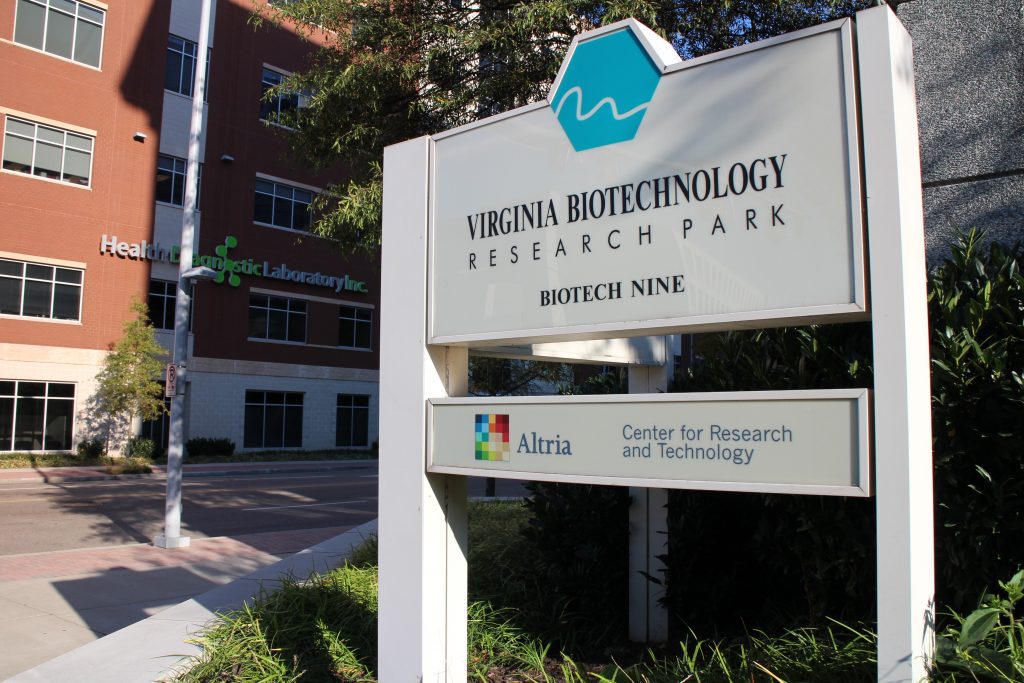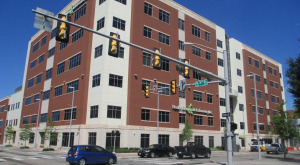One of several high-stakes lawsuits involving downtown-based Health Diagnostic Laboratory has been put on hold as part of the company’s Chapter 11 bankruptcy.
HDL was granted a temporary reprieve last week when a federal judge put a freeze on the lawsuit filed against the troubled medical lab testing firm by insurance giant Cigna.
Known as an automatic stay, it’s a common step in Chapter 11 bankruptcy cases, and similar orders are likely to be filed in the two other lawsuits HDL is facing.
The order from the judge was made official June 11, a day after HDL filed the necessary documents calling for the case to be halted. The company has filed similar documents in its lawsuits from BlueWave Healthcare Consultants and Aetna, but rulings from the court on those cases have not yet been made.
According to the U.S. Bankruptcy Code, lawsuits that began before a company filed for Chapter 11 bankruptcy, which HDL did last week, are automatically stayed while the company advances through those proceedings, preventing claimants from acting against the debtor.
Stays are meant both to relieve the debtor while it works with the bankruptcy court and allow creditors time to weigh in and take a look at what is in the filings. The three lawsuits HDL faces seek a total of nearly $300 million in damages.
The process will also keep the company from accruing additional legal fees on the cases while they are on hold. At least six of HDL’s unsecured creditors are law firms, to which the company owes more than $3 million combined, its initial bankruptcy filings indicate.
The automatic stay will also apply to the $66 million countersuit that HDL filed against Cigna. That sum accounts for a significant amount of money that the company believes it is owed, HDL’s attorney Tyler Brown of Hunton & Williams told a federal judge last week.
Further changes to the lawsuits may be on the horizon, as well. BlueWave lawyer John Galese of Galese & Ingram said there is a chance that the bankruptcy judge could require all the cases be moved from their respective federal courts to bankruptcy court in Richmond.
The BlueWave case is currently being heard in Alabama, Cigna is in Connecticut federal court and the Aetna case is playing out in Pennsylvania.
“It’s discretionary to a bankruptcy judge to bring all the litigation into one forum,” Galese said.
HDL has yet to file a response to either BlueWave or Aetna’s initial claims. Cigna’s case was stayed after the insurance company filed a motion to dismiss HDL’s countersuit.
HDL filed for Chapter 11 bankruptcy June 7 after BB&T, its biggest lender, cut it off from its line of credit in late May and initially prevented the company from accessing its bank accounts. The company’s initial bankruptcy filing listed more than 200 creditors that are owed between $100 million and $500 million.
But the protection of Chapter 11 will likely not prevent the company from having to continue paying the federal government. HDL owes $49.5 million to the U.S. Department of Justice as part of a settlement that went into effect in early April, and terms of that agreement state that the payments to the government cannot be avoided through bankruptcy. The Justice Department is HDL’s largest unsecured creditor.
A DOJ representative confirmed that HDL did pay its first installment of nearly $1 million to the federal government on April 30.
Following HDL’s Chapter 11 filing, the DOJ said in a statement last week “The United States will protect its interests and assert claims against HDL in the bankruptcy case.”
One of several high-stakes lawsuits involving downtown-based Health Diagnostic Laboratory has been put on hold as part of the company’s Chapter 11 bankruptcy.
HDL was granted a temporary reprieve last week when a federal judge put a freeze on the lawsuit filed against the troubled medical lab testing firm by insurance giant Cigna.
Known as an automatic stay, it’s a common step in Chapter 11 bankruptcy cases, and similar orders are likely to be filed in the two other lawsuits HDL is facing.
The order from the judge was made official June 11, a day after HDL filed the necessary documents calling for the case to be halted. The company has filed similar documents in its lawsuits from BlueWave Healthcare Consultants and Aetna, but rulings from the court on those cases have not yet been made.
According to the U.S. Bankruptcy Code, lawsuits that began before a company filed for Chapter 11 bankruptcy, which HDL did last week, are automatically stayed while the company advances through those proceedings, preventing claimants from acting against the debtor.
Stays are meant both to relieve the debtor while it works with the bankruptcy court and allow creditors time to weigh in and take a look at what is in the filings. The three lawsuits HDL faces seek a total of nearly $300 million in damages.
The process will also keep the company from accruing additional legal fees on the cases while they are on hold. At least six of HDL’s unsecured creditors are law firms, to which the company owes more than $3 million combined, its initial bankruptcy filings indicate.
The automatic stay will also apply to the $66 million countersuit that HDL filed against Cigna. That sum accounts for a significant amount of money that the company believes it is owed, HDL’s attorney Tyler Brown of Hunton & Williams told a federal judge last week.
Further changes to the lawsuits may be on the horizon, as well. BlueWave lawyer John Galese of Galese & Ingram said there is a chance that the bankruptcy judge could require all the cases be moved from their respective federal courts to bankruptcy court in Richmond.
The BlueWave case is currently being heard in Alabama, Cigna is in Connecticut federal court and the Aetna case is playing out in Pennsylvania.
“It’s discretionary to a bankruptcy judge to bring all the litigation into one forum,” Galese said.
HDL has yet to file a response to either BlueWave or Aetna’s initial claims. Cigna’s case was stayed after the insurance company filed a motion to dismiss HDL’s countersuit.
HDL filed for Chapter 11 bankruptcy June 7 after BB&T, its biggest lender, cut it off from its line of credit in late May and initially prevented the company from accessing its bank accounts. The company’s initial bankruptcy filing listed more than 200 creditors that are owed between $100 million and $500 million.
But the protection of Chapter 11 will likely not prevent the company from having to continue paying the federal government. HDL owes $49.5 million to the U.S. Department of Justice as part of a settlement that went into effect in early April, and terms of that agreement state that the payments to the government cannot be avoided through bankruptcy. The Justice Department is HDL’s largest unsecured creditor.
A DOJ representative confirmed that HDL did pay its first installment of nearly $1 million to the federal government on April 30.
Following HDL’s Chapter 11 filing, the DOJ said in a statement last week “The United States will protect its interests and assert claims against HDL in the bankruptcy case.”




